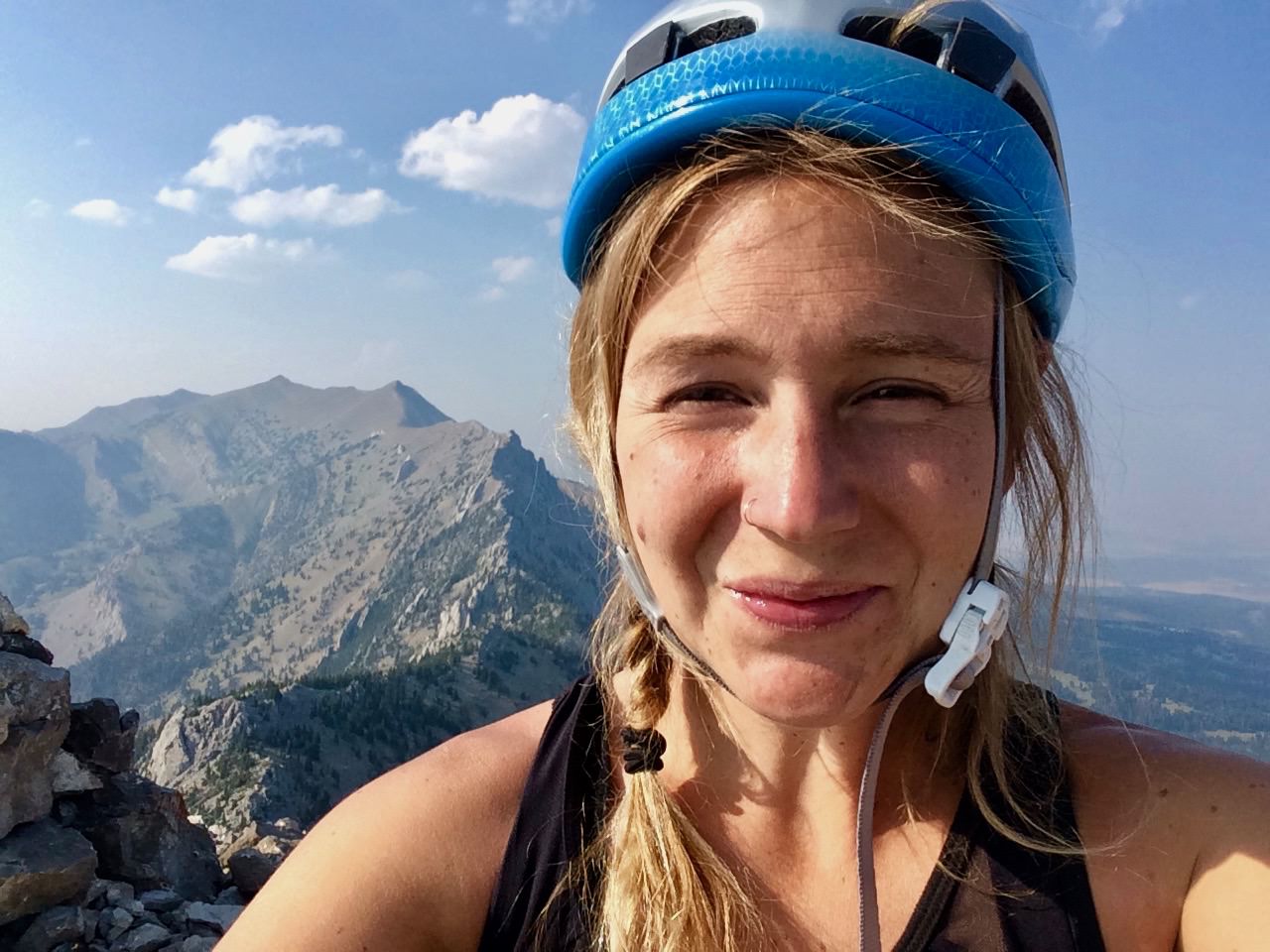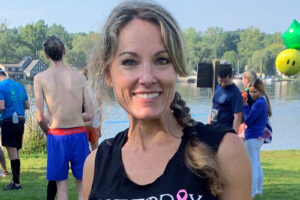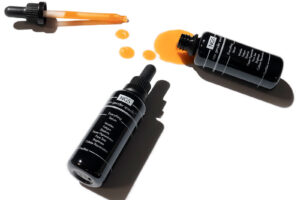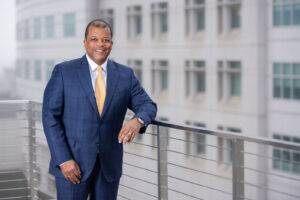I don’t remember sledding with my brother down our driveway on that winter day, just a few weeks before I turned seven. I don’t remember hitting the snow bank, and I don’t remember my parents taking me to the hospital. But I do remember waking up with an IV in my wrist, the first of many, and being confused and scared. I remember someone telling me I had a tumor. I know my mom was there.
My next memory is me waking up again, this time in a different hospital. The surgeon had removed my left kidney along with the tumor that wrapped around it. There were at least a dozen pieces of silicone tape over the stitches, covering the red and purple scar that traveled across my abdomen. The tape was itchy; I peeled it off early.
Memories of my childhood illness are muddled, few and far between. It was a traumatic time for my family, and afterward, I subconsciously closed the door, locking out the emotions those memories elicited. The thing about memories is that even when you think you’ve forgotten them, they still survive somewhere deep inside.
I was diagnosed with stage IV neuroblastoma. My chances of survival were not good, but if I knew that, I’m not sure I understood what it meant. As a seven-year-old, I felt pain and I felt fear, but I couldn’t conceptualize dying. I was lucky for that.
My mom and I moved to Chicago for six months for treatment while my dad stayed home in Maine with my two siblings. One of the nurses said I was given “everything but the kitchen sink.” What I was actually given was radiation to my left side (where the tumor had been), three stem-cell rescues, a bone marrow transplant, and a whole lot of chemo. I was the fifth child to follow this trial protocol.
It wasn’t all bad. There were jokes played on doctors and hospital masks decorated with dog and cat noses. There were trips to the Lincoln Park Zoo to watch the polar bears swim and inside access to see the baby gorilla nursery. There were amazing nurses and doctors and people we met at Chicago’s Ronald McDonald House where we stayed while I went through treatment.
The thing about memories is that even when you think you’ve forgotten them, they still survive somewhere deep inside.
There was also another little girl at the Lurie Children’s Hospital of Chicago who also had neuroblastoma and was given the same treatment. She was four years younger than me, and even though I didn’t really know her, I felt like her older sister. She always smiled. I thought if she could be brave then I could be brave, too. She was in remission for six years before she relapsed and died at age the age of 10. The news was devastating, but I did not acknowledge how unsettling and scary it was for me.
The mind is strong, and mine worked hard to protect me from the constant fear and trauma of the tests and tubes of treatment. I went as far as to invent my own language—“soosipasio”—as a defense mechanism, and for a while, I would only communicate in that tongue while in the hospital. My imagination was my safety.
Days went by and then years, and now here I am, 23 years in remission, and I’m just now starting to unpack the deeply buried trauma of my childhood. I am reconnecting with myself, that little girl, in a language only the two of us share. I’m telling her that she is brave and so strong. That this body we share is still the same body it was all those years ago. It has grown and strengthened and changed, but it still holds that trauma. Instead of running away or ignoring her, I’m listening. I’m drawing my own roadmap, and I’m inviting my anxiety to ride along with me.
 Sophie Tsairis is a writer, rock climber and trail runner in Bozeman, Montana.
Sophie Tsairis is a writer, rock climber and trail runner in Bozeman, Montana.
Days went by and then years, and now here I am, 23 years in remission, and I’m just now starting to unpack the deeply buried trauma of my childhood. I am reconnecting with myself, that little girl, in a language only the two of us share. I’m telling her that she is brave and so strong. That this body we share is still the same body it was all those years ago. It has grown and strengthened and changed, but it still holds that trauma. Instead of running away or ignoring her, I’m listening. I’m drawing my own roadmap, and I’m inviting my anxiety to ride along with me.







